The 10 Biggest Microsoft Stories Of 2009
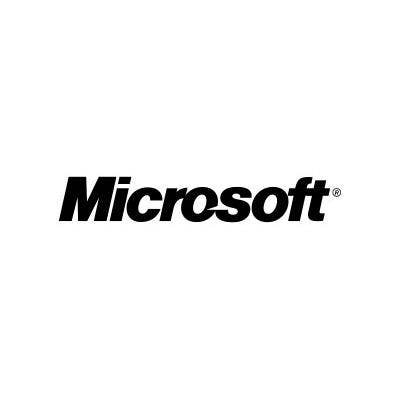
Microsoft has a new operating system out called Windows 7. Perhaps you've heard of it?
If Windows Vista can be likened to a clunky Edsel, then Windows 7 is a sleek Rolls Royce, flawlessly polished and offering an unparalleled level of computing convenience. For partners scarred by bad Vista memories, Windows 7's arrival signaled the start of the healing process.
Microsoft's Windows 7 marketing focuses on how the company listened to user feedback and gave them exactly what they asked for. In this way, Microsoft has masterfully taken the Vista flop and turned it into Windows 7 gold. The Windows business may be facing challenges from cloud computing and open source circles, but with Windows 7, Microsoft has made a definitive statement that it's still able to turn out an operating system that can make people positively giddy.
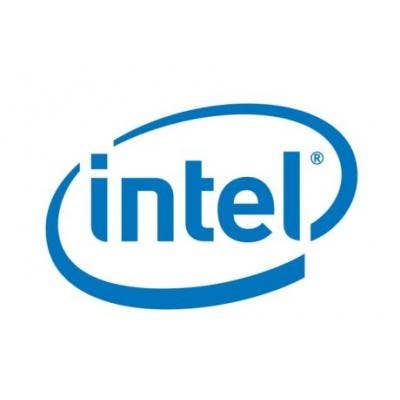
Microsoft in January revealed plans to eliminate 5,000 positions by June 2010 as part of a $1.5 billion cost-cutting effort. Although not unexpected, it was still a surprising move for a company that has historically gone out of its way to hold onto employees. And as it turned out, the 5,000 figure was a bit low, as recent reports have suggested that closer to 6,000 employees have been shown the door in 2009.
In May, Steve Ballmer warned Wall Street analysts that the IT industry faces a "once-in-a-lifetime set of economic conditions" and said the economy was in the process of "resetting to a lower level of business." With signs pointing to continued weakness in the PC and server markets, 2010 may be another year of difficult decisions for Microsoft management.
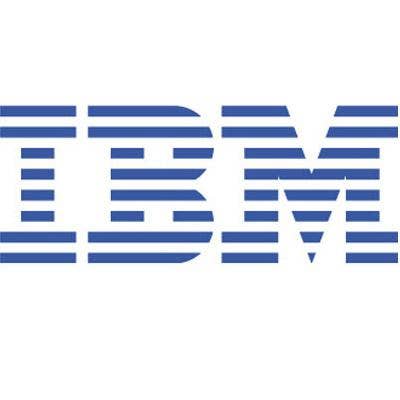
Hello, VMware? It's me, Microsoft. Forgive me for being so bold, but I'm about to take a serious bite out of your market share lead in virtualization, and there's nothing you can do about it.
You see, now that Hyper-V Server 2008 R2 is out, I can tout features like Cluster Shared Volumes and Live Migration, which VMware has been using in a feeble attempt to show that your ESX Server is superior. And the best part is, Microsoft's virtualization offering is much cheaper than VMware's because customers don't have to pay extra for virtualization. Yes, that's right, VMware is an extra infrastructure layer and a superfluous expense -- good luck trying to explain that one to cost conscious customers!
Oh, I'm sure you'll keep fighting and spreading fear, uncertainty and doubt, VMware. And please, feel free to keep doing so -- Microsoft actually finds it quite amusing. Just be aware that I'm coming after you in the virtualization space with the intensity of a thousand hungry wolves, even though I'm just one wolf. I eagerly await your futile attempts to stop me!
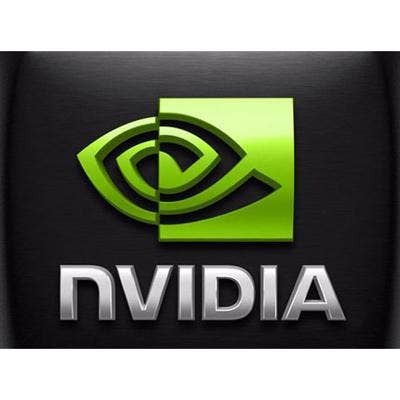
2009 was a gestation period for Windows Azure, Microsoft's cloud computing development platform. In July, Microsoft shared Azure pricing and business model details with channel partners, and in November, Microsoft showed how early adopters are building applications that take advantages of the efficiencies the cloud has to offer.
Microsoft will move Azure into production on Jan. 1 and will begin charging customers on Feb. 1. Next year, the goal for Microsoft is to get its developers and partners onto the platform quickly enough to justify the massive investment it has made on the data centers where Azure will run.
"Windows Azure is a cloud computing operating environment designed to manage extremely large pools of computational resources. It's a cloud OS designed for the future, but made for today," Microsoft Chief Software Architect Ray Ozzie (pictured) told attendees of Microsoft's Professional Developer Conference in November.
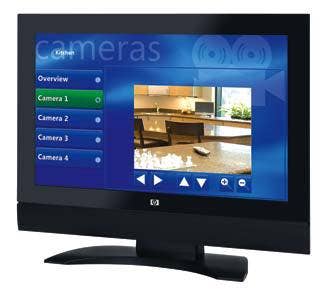
Flashy new smartphones have been arriving with clocklike regularity, but none of the truly impressive ones are Windows Mobile devices. 2009 was a year of difficulty for Windows Mobile, which has seen repeated development delays that have seriously hindered Microsoft's ability to compete. Windows Mobile devices are now hitting the market with functionality that has already been available elsewhere for months, and Microsoft's market share has been steadily dwindling.
Microsoft did fess up to its Windows Mobile missteps, however, and earlier this year undertook a major reshuffle of the Windows Mobile group. There are also signs that Microsoft is speeding up development of Windows Mobile 7, which is being cast as a savior of sorts with features that can put Microsoft back into the game. Still, even if Windows Mobile 7 arrived today, Microsoft would still need sustained innovation in this area to make up for lost time.

An historically bad economic environment with moribund PC sales might seem an odd time for a software company to get into retail. But Microsoft in October did just that, opening its first two retail stores in Mission Viejo, Calif. and Scottsdale, Ariz. Windows 7 is the key element here, as the touch screen capability in the OS has given Microsoft's OEM partners the leeway to come up with truly impressive PCs.
Sure, Microsoft stores borrow heavily from Apple stores: They're heavily staffed, brightly lit environments where technology takes center stage. But Microsoft stores also have huge video screens on all four walls -- something Apple stores don't have -- that display an ever changing array of marketing messages.
Microsoft is also trying to get people talking about its stores: Both stores' grand openings featured performances by teen pop stars and attracted hundreds of visitors. More recently, a video surfaced that shows at least a dozen Microsoft employees breaking out into an organized dance routine to the music of the Black Eyed Peas. That's one thing you probably won't witness at your local Apple Store.

If Google is Microsoft's 'white whale', then Bing is the harpoon with which the software giant aims to bag its quarry. Microsoft launched Bing in June, touting it as a 'decision engine' that cuts neatly through the clutter generated by today's search engines and helps users quickly find what they're looking for. The first wave of Bing advertisements took shots at Google's keyword-based search business model and portrayed it as an outmoded approach in need of fixing.
Bing has managed to gain some search market share, accounting for 9.9 percent of U.S. Web searches in October, up four percent from the previous month. While this growth rate probably isn't keeping Google executives up at night, Microsoft has vowed to spend between 5 and 10 percent of its operating income over the next five years on improving its search technology, and it's signing deals left and right with other search firms in an effort to make Bing something that's truly unique.

Solution providers were thrilled when Microsoft finally started fighting back against Apple with a series of television ads that played up the cost advantages of PCs over Macs. Launched in March, Microsoft's 'Laptop Hunters' campaign was seen by VARs as an appropriate, albeit long overdue response to Apple's needling 'Get A Mac' ads.
Microsoft says the ads are having the desired effect: At its Financial Analyst Day in July, Microsoft officials cited independent survey data that showed 18- to 24-year-olds' brand perception moving steadily away from Apple in favor of Microsoft. Microsoft's counterattack hasn't been cheap -- Steve Ballmer earlier this year admitted that Microsoft has "spent a bunch of money" on Windows advertising and marketing. Still, in the opinion of channel partners, this is money well spent.

Microsoft last year began acknowledging the revenue-gnawing impact that netbooks were having on Windows client revenue, and this has also been a theme in each of the company's quarterly earnings calls this year. And yet, Microsoft still insists that it's not concerned about the potentially damaging effects of netbooks.
With netbooks, Microsoft is engaged in an intricate dance, on one hand claiming netbooks' popularity means more sales of Windows licenses, while on the other hand searching furtively for ways to increase the revenue it's getting from Windows on netbooks. At Microsoft's Financial Analyst Meeting in July, Steve Ballmer talked about the imminent arrival of "ultra-thin" devices similar to high-end netbooks, and how Microsoft will be able to charge more for Windows 7 on these machines.
Microsoft earlier this year backed off a controversial plan to limit Windows 7 Starter Edition -- which ships with today's cheaper netbooks -- to three simultaneously running applications. Microsoft would like netbook customers to see the benefits of upgrading to the pricier Windows 7 Home Premium, but in a market that's so price-sensitive, that's a difficult case to make.

Microsoft in July redubbed its partner program the Microsoft Partner Network and introduced the idea of ranking VARs according to their actual skills and customer service. VARs who've long been clamoring for more visibility in the Microsoft partner program welcomed the news, and were especially pleased about Microsoft's intention to do away with the almost-meaningless Gold and Certified designations.
Microsoft is in the process of developing 32 "solution competencies" for channel partners and will start using them to rank partners next year. The idea is to help VARs develop new skills and differentiate themselves in the marketplace more effectively, and customer satisfaction surveys and references will take on greater importance.
"Customers want to know which partners are the best and what they're the best at, and one way to prove that is with customer references," said Allison Watson (pictured), vice president of worldwide channels at Microsoft, at Microsoft's Worldwide Partner Conference in July.